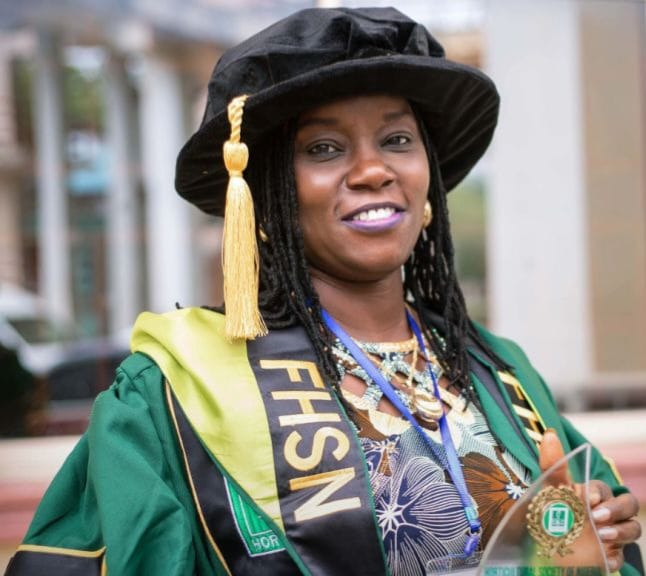Agriculture
Organic Agriculture combines best traditional practices for modern sustainable farming methods – Don

Dr Jude Obi, Lecturer, Department of Soil Science and Land Resources Management, University of Uyo says Organic Agriculture combines best traditional practices with modern, sustainable farming methods for the health of all.
Obi said this during his online presentation on `Organic Agriculture to the Rescue’ organised by the Journalists Go Organic Initiative.
He said that any agriculture practice that is not rooted, grows and develops on the principles of health, ecology, fairness, and care should be jettisoned.
“These principles express the contributions and the vision that organic agriculture presents to humanity for achieving safe and egalitarian global society.
“It sustains and enhances the health of soil, plant, animal, human and planet as one and indivisible, relies on living ecological systems and cycles, work with them, emulate them and help sustain them.
“Builds on relationships that ensure fairness with regard to the common environment and life opportunities, manages in a precautionary and responsible manner to protect the health and well-being of current and future generations and the environment.
“Any activity, process, practice etc. that does not conform, uphold and fully abide with these principles is clearly not good for the environment and its inhabitants,’’ he stressed.
Obi who is also the Coordinator for the Knowledge Centre for Organic Agriculture (KCOA) in Africa also highlighted the potentials of ecological agriculture.
“Ecological agriculture generates both economic value and sustainable development which should be seriously promoted to enable Africa exploit this niche.
“The continent should adopt organic agriculture practice due to the fragile environment that pervades it, for instance, the best soils are alluvial deposits found in the major river valleys.
“Most of the soils are difficult to cultivate, although soils in the humid tropics can be quite rich due to the forest cover and the rapid decomposition of organic matter.
“However, intense rainfall leads to the leaching of most of the plant nutrients resulting in the formation latosols/ferrosols, luvisols with some undesirable characteristics’’.
According to Obi, towards the deserts, the soils are sandy and deep but low in humus and quite infertile (arenosols) which give way to xerosols that are quite low in humus.
“Confronting these fragile environments is the episode of land degradation ‘worsening’.
“The summary is that these soils are inherently not resilient and management using synthetic resources and heavy equipment is not sustainable in the long run. It has caught up with us earlier than anticipated.
“These explained the failure of all large farms established in Nigeria and will continue to hunt those that will decide not to listen that organic agriculture is the answer’’.
He said that both researches and practical results have shown that in as much as the conventional system continually increases inputs from soil amendments to herbicides, pesticides, insecticides etc. and finally genetical modifications: organic practices increase benefits, profitability and the entire under presented benefits with time.
Enumerating the benefits of organic agriculture, Obi said it has positive effects on the soil by improving soil condition, lower soil pollution, erosion and flooding, ground water purification, energy efficient, greater flavor and nutrition, helps pollinators and sustains biodiversity.
“Organically grown food and agricultural produce have better nutrition, helps us stay healthy, free of poison, organic foods enhance taste and longer shelf–life.
“Has antioxidant content, improves heart condition, antibiotic resistance, pesticide cutback, stronger immune system, products are poison-free, Lower levels of toxic metals etc’’.
Obi concluded that with the crisis that has confronted humanity from strange diseases, to unfriendly environment, natural disaster, communal clashed, war etc. It became obvious that the starting point is environmentally friendly options and the organic agriculture has taken the lead.
Agriculture
Sakata Seeds Strengthens West Africa Team with Dr. Hadiza Yaro’s Appointment

Joel Ajayi
The former Nigeria Country Manager of East-West Seed, Dr. Hadiza Yaro, has joined Sakata Seeds Nigeria–West Africa Office as Sales Manager for Nigeria and Anglo-West Africa.
In her new role, she will oversee the company’s operations across English-speaking countries in the region, including Togo and the Benin Republic.
Her responsibilities will include servicing existing clients, building new partnerships, and expanding Sakata’s footprint across the continent.
Dr. Yaro holds a PhD in Agronomy and has pursued further studies in Marketing and Food Security across Africa, Europe, and Asia. Announcing her appointment, Vicente Celada, Sakata’s West Africa Director, said: “I am absolutely certain Hadiza will be a great addition to Sakata’s projects in West Africa.”
Over the past decade, Dr. Yaro has established herself as a thought leader, practitioner, and policy advocate in agribusiness.
At East-West Seed, she played a pivotal role in growing the company’s presence in Nigeria while championing smallholder farmers, particularly in Northern Nigeria. She has presented research on the critical role of smallholder farmers in achieving national food security and self-sufficiency.
She also spearheaded several agribusiness fairs and expos that showcased the impact of seed quality on crop yields events that attracted significant media attention. In addition, she worked with governors and state agricultural ministries on strategies to empower smallholder farmers and increase local agricultural output.
A native of Zuru, Kebbi State, Dr. Yaro is widely recognized as an agronomist and agribusiness expert. She is expected to bring the same expertise and innovation to her new role at Sakata Seeds.
Sakata Seed is a global company engaged in the breeding, production, and sale of high-quality vegetable and flower seeds, along with gardening materials and agricultural products. With a strong focus on research and development, Sakata offers a diverse range of horticultural varieties and maintains an extensive international network of offices and research stations.
The company also undertakes related ventures, including landscaping and greenhouse construction, serving both wholesale and retail markets.
-

 Featured6 years ago
Featured6 years agoLampard Names New Chelsea Manager
-

 Featured5 years ago
Featured5 years agoFG To Extends Lockdown In FCT, Lagos Ogun states For 7days
-

 Featured6 years ago
Featured6 years agoChildren Custody: Court Adjourns Mike Ezuruonye, Wife’s Case To April 7
-

 Featured6 years ago
Featured6 years agoNYSC Dismisses Report Of DG’s Plan To Islamize Benue Orientation Camp
-

 Featured4 years ago
Featured4 years agoTransfer Saga: How Mikel Obi Refused to compensate me After I Linked Him Worth $4m Deal In Kuwait SC – Okafor
-
Sports3 years ago
TINUBU LAMBAST DELE MOMODU
-

 News9 months ago
News9 months agoZulu to Super Eagles B team, President Tinubu is happy with you
-
Featured6 years ago
Board urges FG to establish one-stop rehabilitation centres in 6 geopolitical zones
